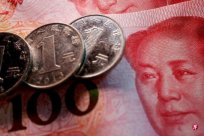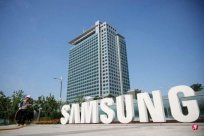
(Bloomberg, New York) A British study shows that compared with the benefit of emerging economies such as China, artificial intelligence (AI) can promote the growth of developed economies such as the United States;It will exacerbate global competition in Washington and Beijing.
The potential to benefit from AI, the country in the United States, Singapore No. 2
Capital Economics, headquartered in London's Economic Research Agency, ranked the potential for benefiting from all countries from AI. The results showed that the United States topped the list, and then Singapore, the United Kingdom and Switzerland.
The report said that China ranks in the middle of 33 countries.Although China has strong innovation capabilities and a lot of investment in AI, strict regulatory measures in Beijing may slow down AI technology diffusion.
Kaitou Macro Chief Asian Economist Williams and other researchers wrote in the report that adding AI to the layer of consideration, China's GDP (GDP) will not catch up with the United States."The AI Revolution makes us more reason to think that the Chinese economy will be recovered by the expected Chinese economy."
China must also solve the US export restrictions on the microcroof of AI for AI.The report said that this means that "the Chinese AI ecosystem will be independent of the West."
AI or expand the development gap between developed economies and emerging markets
Researchers say that the competition between China and the United States for the leadership of the AI market may bring a "positive spillover effect" to other countries."If the two parties are promoted to use their own machine learning tools to obtain the network effect, the result may be that cutting -edge technology will spread globally faster."
But the most likely result is that more extensive use of AI "will have changed the global trajectory that has been enlarged for a period of time: the average income of emerging markets to catch up with the income of developed countries, compared with the revenue of developed countries, and the gold of emerging markets in the early 2000s and early 2010sThe times will slow down. "
Standard Chartered Banking Economist issued a similar conclusion earlier this year, that is, the development gap between AI may expand the development gap between developed economies and emerging markets.Goldman Sachs Group analysts said in March that "generating AI" may lead to a sharp rise in US productivity. In 10 years, it has increased by about 1.5 percentage points per year and greatly promotes global economic growth.
Kaitou macro says that AI may hinder India's growth in the short term, partly because developed countries will slow down the growth of business process outsourcing.According to the report, the "slow demise" of the outsourcing industry may make India's economic growth decreased by 0.3 to 0.4 percentage points per year in the next 10 years.
Report predict that AI may also exacerbate internal inequality in various countries, because more benefits obtained by capital owners are more than most workers.
Researchers believe that AI will supplement high -skilled labor, and capital returns will be concentrated in the small technology industry, which means that income unequal to increasing income.
However, the report believes that AI is unlikely that the unemployment rate is permanently increased because new AI -related employment may occur, and the increase in productivity may also lead to an increase in demand for goods and services.However, "severe confusion may occur in the short term."



